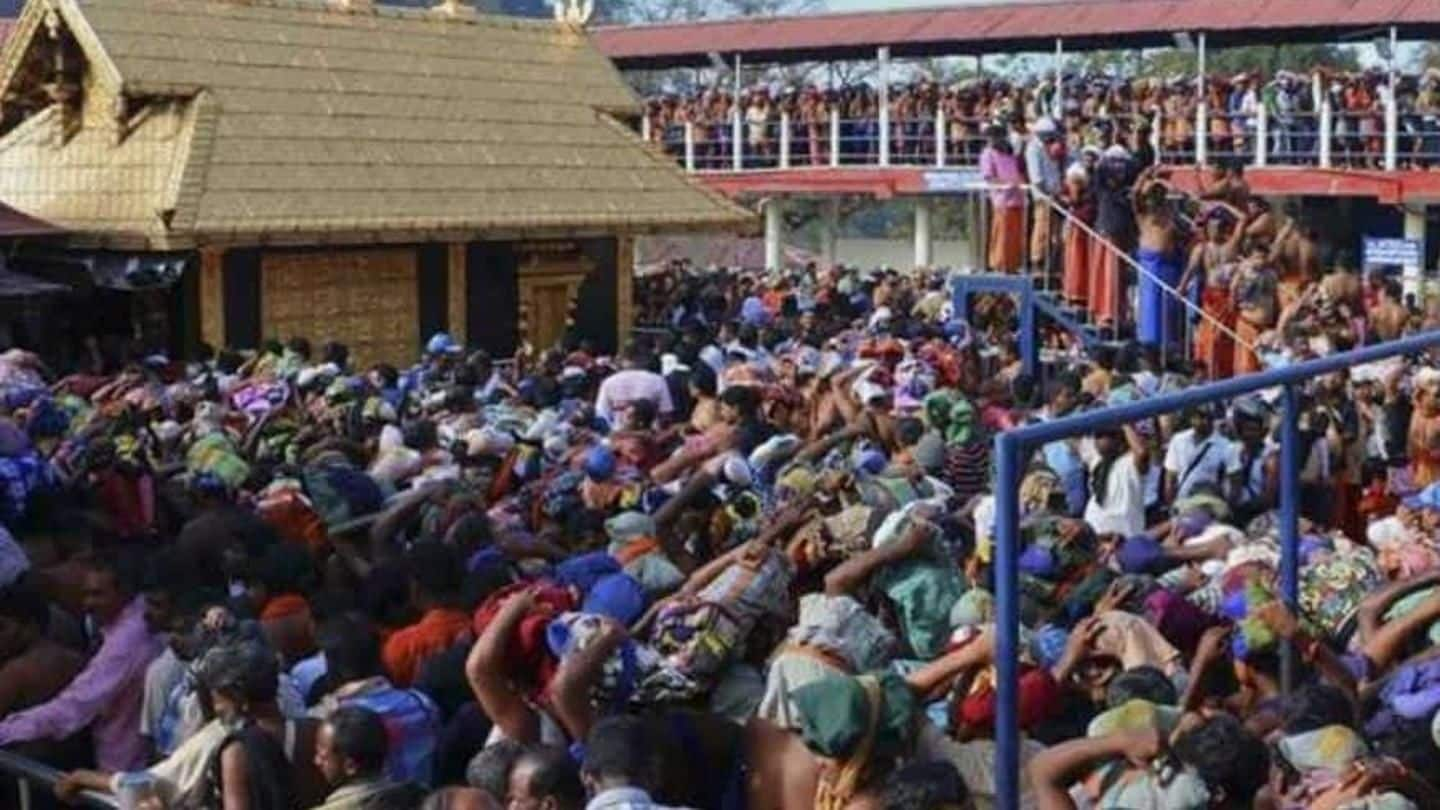
#SabarimalaVerdict: What sole dissenting and woman judge Indu Malhotra said
What's the story
Dissenting with the majority on Sabarimala verdict, Justice Indu Malhotra opposed the upliftment of ban in Sabarimala Temple in Kerala saying, "Notion of rationality should not be seen in matters of religion". Justice Malhotra was a member of the five-judge bench, which was headed by Chief Justice Dipak Misra and included Justices RF Nariman, AM Khanwilkar, DY Chandrachud. Here's more on what she said.
Verdict
SC uplifts 800-year-old ban, makes progressive statements
The majority of bench agreed that women shouldn't be restricted from entering the temple, and the ban can't be seen as 'essential religious practice'. "Religion cannot be the cover to deny women right to worship. To treat women as children of lesser God is to blink at Constitutional morality," CJI Misra said, giving the verdict. With progressive statements, the bench ended an 800-year-old ban.
What she said
But, Court should respect religious practices, opines Justice Malhotra
Notably, Justice Malhotra, the only woman on the bench, disagreed. She said the shrine and deity were protected by Article 25 of the Constitution. She said in a secular polity, it isn't for courts to decide the rationality and logicality of religious practices. "Court should not interfere unless if there is any aggrieved person from that section or religion," (sic) she added.
Quote
Here's what Justice Malhotra said about worshipers of Sabarimala
"If there are clear attributes that there exists a section with identifiable characteristics, they constitute religious denomination. Worshipers of Sabarimala have attributes of religious denomination or sect," Justice Malhotra pointed out.
Statement
On court's interference, Justice Malhotra makes a 'sati' reference
About the role of courts, Justice Malhotra said they shouldn't interfere even if the practice seems oppressive. The court should step in only if a practice becomes oppressive as 'sati', Justice Malhotra believed. Further, she added rights of women conflicted with the rights of Ayyappa worshipers. "Issue in this case not limited to Sabarimala only. It'll have far-reaching implications for other places of worships," she went on.
Details
Separately, Justices Nariman and Chandrachud speak about women equality
Giving his judgment, Justice Nariman noted the notion that women can't keep fast stemmed from the assumption that they were weak. "To treat women as lesser people blinks at the Constitution itself," he added. He said a ban on women's entry violated Article 21 of the Constitution. Justice Chandrachud agreed. He said birthmarks and physiology could not be a basis for denying constitutional entitlements.